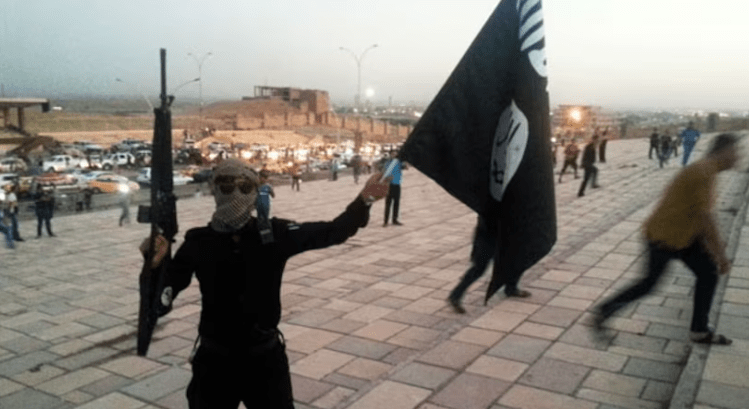
The Islamic State extremist group poses a rising threat amid political instability in West Africa and the Sahel and remains intent on carrying out attacks abroad, the U.N. counter-terrorism chief said Thursday.
Vladimir Voronkov reiterated U.N. findings that IS continues to pose a significant threat to international peace and security, especially in conflict zones, despite significant progress by U.N. member nations in countering the threat. The group has also increased operations in its former strongholds in Iraq and Syria as well as Southeast Asia, Voronkov said.
Voronkov told the U.N. Security Council that in West Africa and the Sahel, a broad region cutting across the continent, the situation has deteriorated and is becoming more complex, as local ethnic and regional disputes cross with the agenda and operations of the extremist group, which is also known by its Arabic name Daesh, and its affiliates.
Daesh affiliates continued to operate with increasingly more autonomy from the Daesh core, he said, warning that if this trend persists there is a risk that a vast area of instability may emerge from Mali to the borders of Nigeria.
Natalia Gherman, executive director of the U.N. Counter-Terrorism Committee Executive Directorate, said: They are exploiting the political instability and expanding their radius of influence, their operations and territorial control in the Sahel, with growing concerns for coastal West Africa.
The African continent now accounts for almost half of terrorist acts worldwide, with central Sahel accounting for about 25 per cent of such attacks, she told the council.
Voronkov, who heads the U.N. Office of Counter-Terrorism, said countering the threat of terrorism in Africa remains a priority for his office.
Gherman said that enduring challenges persist in the Middle East and Southeast and Central Asia, with indications that Daesh is attempting to resurge in those sub-regions as well.
The Islamic State group broke away from al-Qaida over a decade ago and attracted supporters from around the world. Despite its defeat in Iraq in 2017 and in Syria two years later, U.N. experts said last month that there are still between 3,000 and 5,000 fighters. In Iraq, they are carrying out a low-intensity insurgency with covert terrorist cells while in Syria attacks have intensified since November, the experts said.
In positive developments, he pointed to the group’s prolonged delay in naming a new leader after the previous leader was killed, saying this is assessed to reflect internal challenges and difficulties in ensuring the new leader’s security. In countries such as Indonesia, Malaysia, Egypt and Mozambique, he said, terrorist activity by Islamic State affiliates has been reduced by effective counter-terrorism efforts by member states.
Government efforts to tackle IS financing are also continuing to produce results, Voronkov said. Daesh’s financial reserves are currently estimated between $10 million and $25 million, down from hundreds of millions a few years ago, the U.N. undersecretary-general said.
In Afghanistan, Voronkov said, efforts by the country’s Taliban rulers have reportedly had an impact on the ability of the Daesh affiliate to conduct attacks inside the country. But U.N. experts have described ongoing ties between the Taliban and al-Qaida.
Gherman said a priority for her committee is working with the 193 U.N. member states to address the use of new technology for terrorist purposes, pointing as an example to IS’s increasing use of drones for intelligence gathering and attacks.
Interpol Secretary General Jrgen Stock said the international police organization is working closely with U.N. counter-terrorism officials on a project to help law enforcement identify and prevent the exploitation for terrorists purposes of enablers such as encryption services, video distribution tools and new propaganda platforms.
He said Interpol also has a project to collect data on links between organized crime and terrorists, citing as an example the trafficking of cocaine through North and West Africa mostly by sea and along the Sahel route. Our findings show interactions between terrorist groups and criminal organizations, where their interests and areas of operation converge to benefit both sides, he said.
In combating terrorism, Stock said, Interpol is focusing on biometrics, border security and battlefield information.






